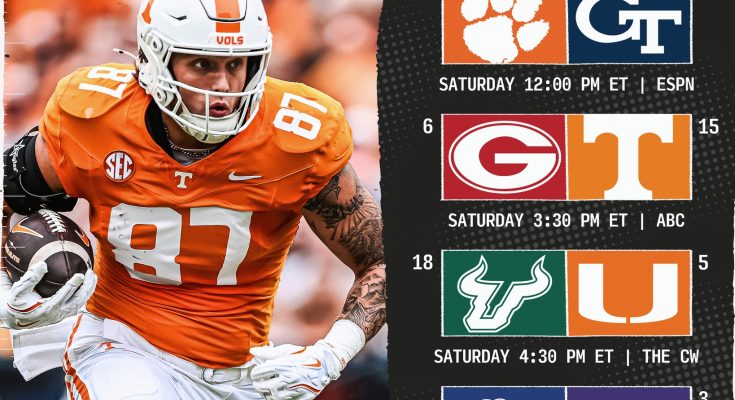The NCAA is currently investigating a significant development in collegiate athletics involving 13 male student-athletes from six different institutions, who are suspected of violating sports betting regulations. This marks a continuation of the NCAA’s ongoing efforts to monitor and enforce its strict rules regarding gambling, an area that has become increasingly scrutinized amid the rising prevalence of legalized sports betting across the United States. Over the past decade, the landscape of sports wagering has shifted dramatically, with state legislatures increasingly embracing the regulation of betting on professional and collegiate sports. While this has opened up new opportunities for fans and commercial interests alike, it has also created heightened challenges for maintaining integrity within amateur athletics, particularly with respect to student-athlete conduct.
The NCAA’s concern centers around the potential compromise of fairness and integrity within collegiate competition. By prohibiting student-athletes from participating in betting activities on sports events, particularly those involving their own sport, the organization aims to ensure that outcomes on the field, court, or rink are determined solely by athletic performance rather than external financial incentives. Sports wagering by student-athletes is explicitly banned under NCAA bylaws, and any confirmed violations can lead to serious consequences, ranging from suspensions to permanent ineligibility, depending on the nature and extent of the infraction.
Details regarding the ongoing investigation are limited at this stage, but the reported involvement of six different institutions highlights the wide-ranging impact that sports betting violations can have across the collegiate landscape. While the identities of the schools and athletes involved have not yet been publicly disclosed, the NCAA’s announcement has prompted widespread speculation within the college sports community. Fans, administrators, and media analysts alike are closely watching developments, as any confirmed violations could have profound implications for the programs involved, potentially affecting team rosters, competitive records, and public perception.
The NCAA’s investigative process is generally methodical and multi-faceted. It often begins with the identification of suspicious betting patterns or reports from third-party monitoring organizations, followed by interviews, collection of electronic communications, and review of financial records. The organization’s enforcement staff works to determine whether student-athletes knowingly participated in wagering activities that contravene NCAA rules and whether there was any effort to influence game outcomes. In many cases, investigators must establish both intent and involvement, which can be complex given the variety of platforms and methods available for placing bets, including online sportsbooks, mobile apps, and informal betting pools.
One notable concern in these investigations is the risk of institutional exposure. While the NCAA primarily regulates student-athletes, there is also an expectation that universities maintain policies and compliance programs to educate players about gambling prohibitions and monitor adherence. Institutions are often expected to provide training on NCAA regulations and to cultivate a culture in which student-athletes understand the potential ramifications of betting violations. Failures in compliance education or oversight may not only put athletes at risk but can also expose the school to NCAA sanctions, including probation, scholarship reductions, or postseason restrictions.
The broader context for this investigation is the growing prevalence of legal sports betting in the United States. Following the Supreme Court’s 2018 decision to strike down the federal ban on sports wagering, many states have enacted legislation to regulate and tax sports betting, creating a multibillion-dollar industry. With increased accessibility, student-athletes may face heightened temptation or exposure to betting opportunities, whether through friends, social media, or peer pressure. The NCAA has emphasized that regardless of the legality of betting in a particular jurisdiction, its rules apply universally to all member institutions and athletes.
Historically, the NCAA has dealt with similar cases involving gambling infractions, though most have been isolated incidents rather than multi-institutional investigations. Penalties in previous cases have ranged from suspension for a single season to permanent ineligibility, depending on the severity and scope of the violation. The organization has also taken steps to reinforce education and compliance programs, aiming to prevent future violations by raising awareness among student-athletes, coaches, and staff. In addition, partnerships with compliance technology firms have allowed the NCAA to monitor betting activity more proactively, flagging potential violations in real time and enabling more efficient investigations.
The timing of this announcement is particularly significant, as it comes in the midst of a period when collegiate sports are increasingly intertwined with high-stakes commercial interests. Television contracts, sponsorship deals, and media rights have transformed college athletics into a major economic enterprise, and the integrity of competitions is paramount for sustaining public trust. Any perception that outcomes might be influenced by gambling activity risks undermining fan confidence, reducing the legitimacy of championships, and potentially deterring corporate partners who invest heavily in collegiate sports. By proactively investigating potential violations, the NCAA demonstrates its commitment to preserving the credibility of college athletics and maintaining a level playing field for all participants.
The potential fallout from confirmed betting violations can be substantial. For the student-athletes involved, consequences may include immediate suspension from competition, loss of athletic scholarships, and potential reputational damage that could impact future professional opportunities. For the institutions, repercussions could extend beyond NCAA sanctions, encompassing negative publicity, diminished recruiting appeal, and strained relationships with alumni and donors. Programs found to have systemic compliance issues may face stricter oversight, including audits and mandated policy reforms, further emphasizing the importance of adherence to NCAA regulations.
In addition to formal sanctions, the cultural and ethical implications of betting violations are significant. College athletes are often viewed as role models within their communities, and adherence to rules governing fair competition is integral to the values promoted by collegiate sports programs. Violations involving gambling can erode trust between players, coaches, administrators, and fans, creating an environment in which the credibility of the sport is called into question. Educational initiatives aimed at fostering ethical behavior and responsible decision-making are therefore crucial components of the NCAA’s broader strategy to address this issue.
The investigation into these 13 student-athletes also underscores the evolving challenges faced by compliance officers and athletic departments. The proliferation of online betting platforms, social media, and digital communication channels has created new avenues for potential violations, making it more difficult to monitor and regulate activity effectively. Athletic departments are increasingly tasked with implementing sophisticated compliance programs that combine education, technology, and ongoing oversight to identify and mitigate risk. This includes regular training sessions, monitoring of digital activity, and establishing reporting mechanisms for suspected violations, all of which require investment in both personnel and infrastructure.
From a legal perspective, NCAA investigations operate independently of criminal or civil proceedings, focusing solely on adherence to organizational rules rather than statutory law. However, student-athletes who engage in illegal gambling activities may still be subject to state or federal penalties, adding another layer of complexity to potential infractions. The intersection of NCAA regulations with legal statutes emphasizes the need for student-athletes to fully understand the consequences of gambling activities, regardless of whether they occur in jurisdictions where sports betting is permitted.
Public response to these announcements is often intense, reflecting the high level of interest in collegiate sports and the ethical standards expected of student-athletes. Fans and media outlets frequently speculate about the identity of the athletes involved, the potential impact on team performance, and the broader implications for college sports. Social media amplifies these discussions, creating an environment in which rumors and speculation can spread rapidly, further complicating the investigative process. The NCAA must balance transparency with the need to protect the rights and reputations of the individuals under investigation, ensuring that conclusions are reached based on verified evidence rather than conjecture.
It is worth noting that the NCAA’s investigation into betting violations is not solely punitive in nature. The organization views these inquiries as opportunities to reinforce compliance, educate athletes, and prevent future infractions. By highlighting potential violations and taking decisive action, the NCAA aims to cultivate a culture of integrity that extends across all member institutions. Educational programs, awareness campaigns, and proactive monitoring are designed to instill an understanding of the risks associated with gambling, emphasizing the long-term benefits of ethical behavior and responsible decision-making.
The involvement of six different institutions in this case suggests that sports betting violations are not confined to isolated incidents but may represent a broader challenge within collegiate athletics. While each situation is unique, patterns of behavior can reveal gaps in education, oversight, or compliance enforcement. Institutions are encouraged to review their own policies, reinforce educational initiatives, and collaborate with the NCAA to ensure that student-athletes are fully aware of the rules and consequences associated with gambling.
Looking ahead, the NCAA is likely to continue expanding its efforts to monitor and regulate sports betting among student-athletes. As betting becomes increasingly accessible and integrated into mainstream culture, the organization faces the ongoing challenge of maintaining ethical standards while supporting the growth and visibility of collegiate sports. The balance between regulation and education will remain critical, as the NCAA seeks to protect the integrity of competitions, uphold public trust, and provide student-athletes with the knowledge and resources necessary to make responsible decisions.
In conclusion, the NCAA’s investigation into 13 male student-athletes from six institutions suspected of violating sports betting regulations highlights the complexities and stakes associated with maintaining integrity in collegiate athletics. While the details of the case are still unfolding, the announcement underscores the organization’s commitment to enforcing rules, promoting ethical behavior, and safeguarding the fairness of competition. Student-athletes, institutions, and fans alike are watching closely, aware that the outcomes of this investigation could have far-reaching implications for the individuals involved, the programs they represent, and the broader landscape of college sports. By taking proactive steps to investigate potential violations and emphasizing education and compliance, the NCAA seeks to ensure that collegiate athletics continue to thrive as a platform for fair competition, personal development, and community engagement, while minimizing the risks posed by the growing influence of sports betting.



